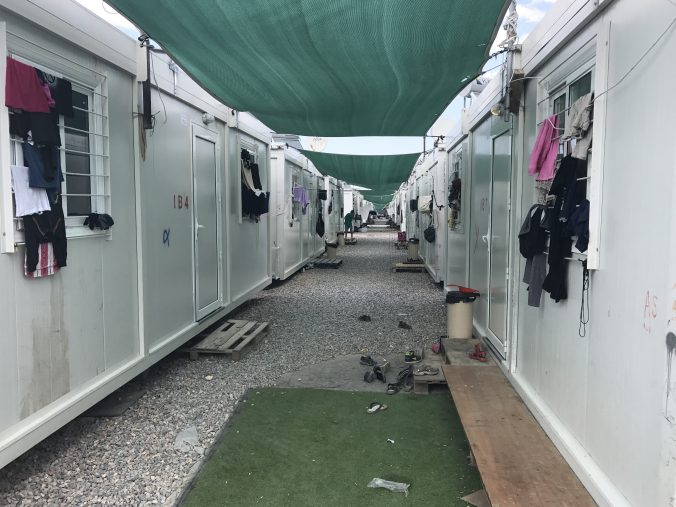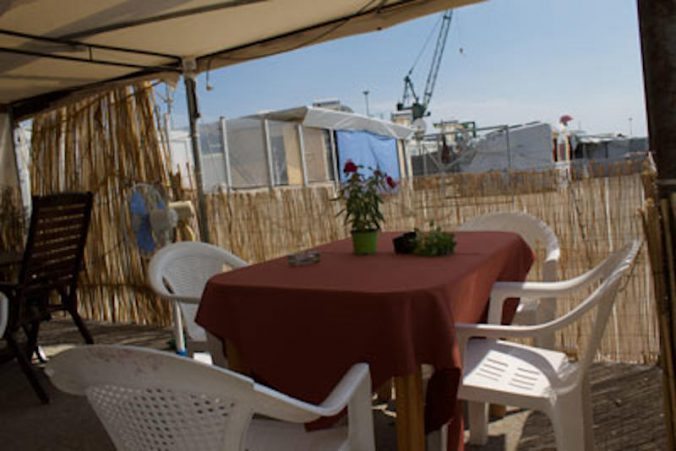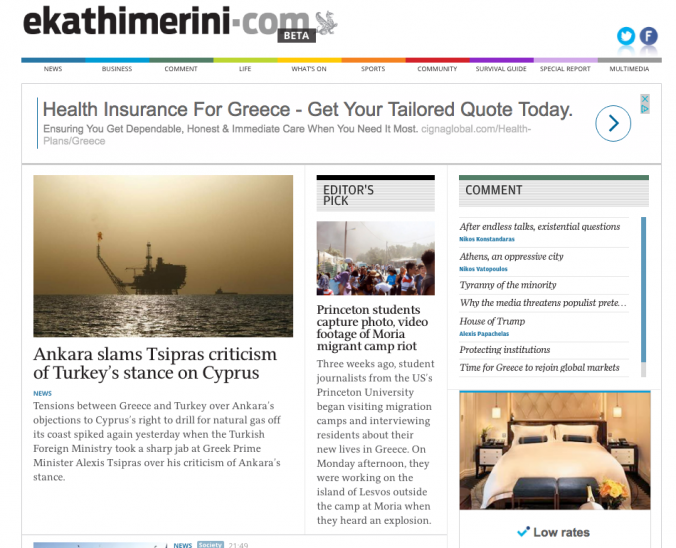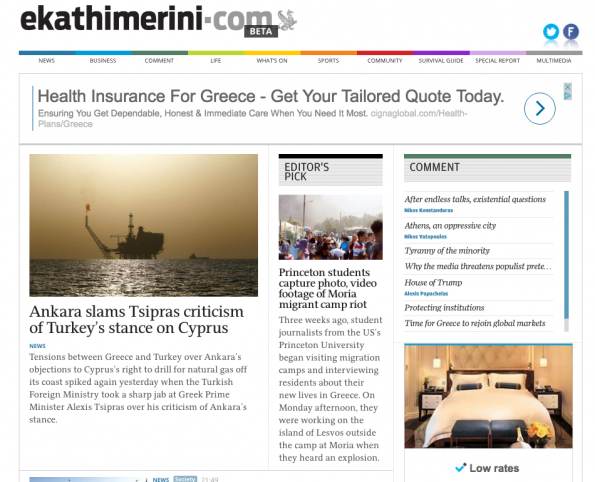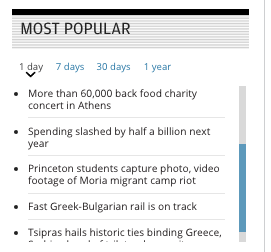By Andie Ayala
In recent years, more than 1 million migrants have floated across the Aegean Sea from Turkey to Greece, landing on the island of Lesbos. Hundreds of their boats happened to wash ashore on a small tourist beach directly behind the Aphrodite Hotel.
The Aphrodite Hotel has 53 rooms, a pool, a taverna and a spa. The Vita family, which runs the hotel, was caught flat footed when the unexpected guests suddenly began arriving two years ago.
On some days, as many as eight boatloads of migrants arrived on the tiny spit of sand, according to Aphrodite Vati Mariola, for whom the hotel is named. Many came from Syria, Afghanistan and Iraq. Mothers, fathers and children traveling alone were fleeing war, persecution and economic instability.
The hotel didn’t receive government or charity support between April and August 2015, Mariola said. Hotel guests would help them attend to the needs of the migrants when they arrived, and clean up the leftover clothes and life jackets that were cast aside on the beach.
When European coast guard ships began patrolling the area, the migrants stopped arriving. But the impact on the hotel continues, Mariola said.
In 2015, before the crisis, 7,989 guests stayed at the hotel, she said. In 2006, at the height of the crisis, tourists stayed away and the number of guests plummeted to 2,911, a 64 percent drop.
Mariola explained that many other local shops, restaurants and hotels experienced a similar decline in business, because tourists were afraid of coming to the island. Now, they are trying to spread word they are still open for business.
“What we need,” Mariola said, “is for the true story to get out there — that things are organized, that things are beautiful, that businesses are ready like they always were in the past.”

